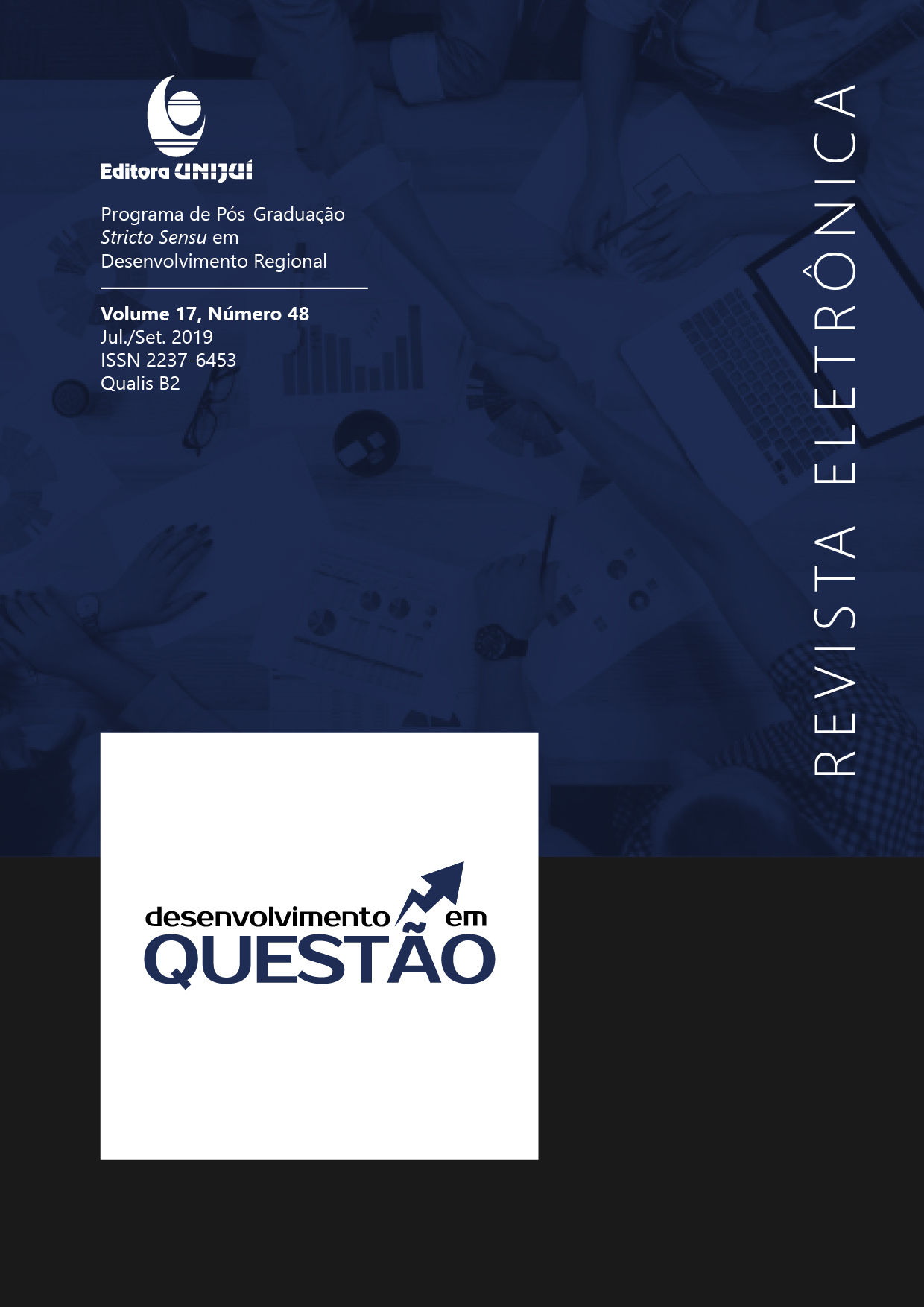Análise de Tecnologias Sociais sob a Luz da Teoria do Ator-Rede: o caso das associações sociotécnicas da pedagogia da alternância
DOI:
https://doi.org/10.21527/2237-6453.2019.48.231-249Palavras-chave:
Tecnologia Social, Pedagogia da Alternância, Teoria do Ator-Rede, Gestão.Resumo
Tecnologias Sociais como a Pedagogia da Alternância têm sido consideradas iniciativas estratégicas para a dinamização de políticas públicas. Um dos maiores desafios, contudo, têm sido a sobrevivência e ampliação dessas Tecnologia Social para outros espaços e contextos. Nesse sentido, o presente trabalho visou analisar como a Pedagogia da Alternância se consolidou na localidade em que surgiu e se tornou uma TS reconhecidamente geradora de transformações sociais. Teoricamente, foi adotada a Teoria do Ator-Rede. Os procedimentos metodológicos se basearam em fontes secundárias de dados documentais e entrevistas, sendo a análise dos dados realizada por meio do conceito de translação. Como resultado, verificou-se que a Pedagogia da Alternância foi, inicialmente, um processo negociado por muitos atores com objetivos distintos e interessamentos diversos. A participação das famílias, o apoio da Igreja Católica e do Governo do Estado e um conjunto de inscrições, inclusive de atores não humanos, definiram as possibilidades, tanto de execução local como sua expansão para outras regiões e países.
Downloads
Publicado
Como Citar
Edição
Seção
Licença
Ao publicar na Revista Desenvolvimento em Questão, os autores concordam com os seguintes termos:
Os trabalhos seguem a licença Creative Commons Atribuição 4.0 Internacional (CC BY 4.0), que permite:
Compartilhar — copiar e redistribuir o material em qualquer meio ou formato;
Adaptar — remixar, transformar e criar a partir do material para qualquer fim, inclusive comercial.
Essas permissões são irrevogáveis, desde que respeitados os seguintes termos:
Atribuição — Atribuição — os autores devem ser devidamente creditados, com link para a licença e indicação de eventuais alterações realizadas.
Sem restrições adicionais — não podem ser aplicadas condições legais ou tecnológicas que restrinjam o uso permitido pela licença.
Avisos:
A licença não se aplica a elementos em domínio público ou cobertos por exceções legais.
A licença não garante todos os direitos necessários para usos específicos (ex.: direitos de imagem, privacidade ou morais).
A revista não se responsabiliza pelas opiniões expressas nos artigos, que são de exclusiva responsabilidade dos autores. O Editor, com o apoio do Comitê Editorial, reserva-se o direito de sugerir ou solicitar modificações quando necessário.
Somente serão aceitos artigos científicos originais, com resultados de pesquisas de interesse que não tenham sido publicados nem submetidos simultaneamente a outro periódico com o mesmo objetivo.
A menção a marcas comerciais ou produtos específicos destina-se apenas à identificação, sem qualquer vínculo promocional por parte dos autores ou da revista.
Contrato de Licença (para artigos publicados a partir de 2025): Os autores mantêm os direitos autorais sobre seu artigo, e concedem a Revista Desenvolvimento em Questão o direito de primeira publicação.











